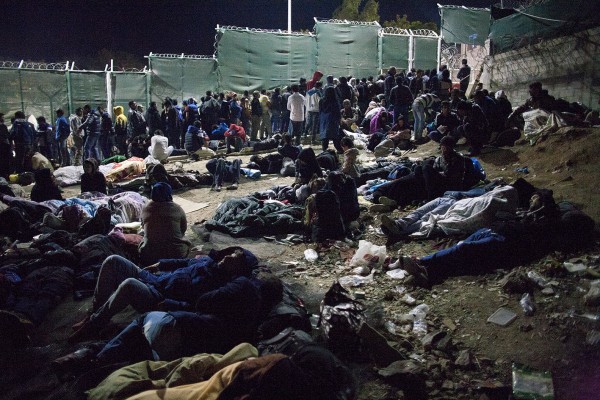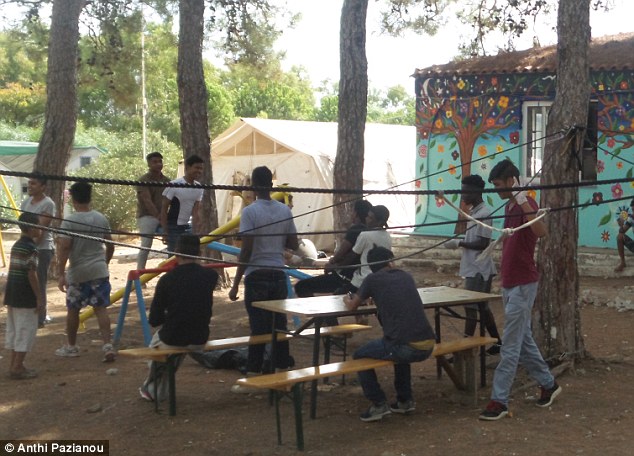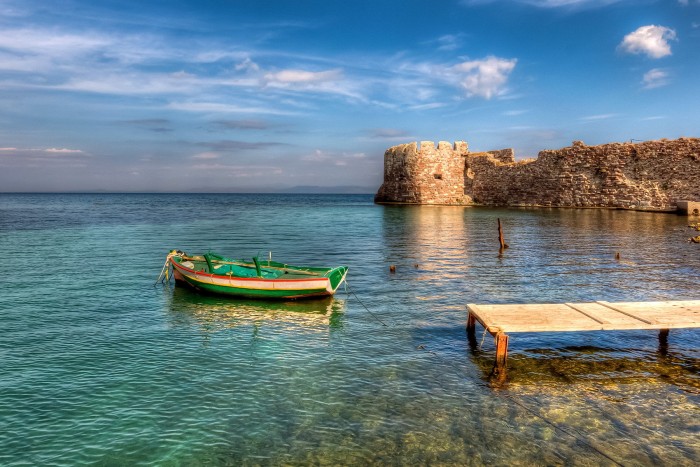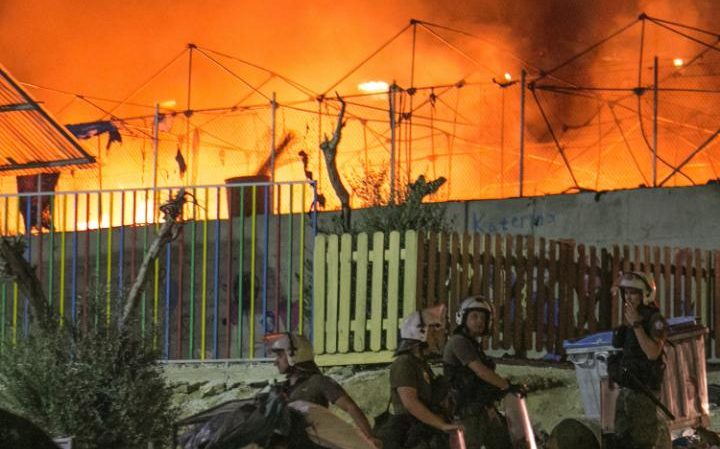The idyllic Greek Island of Lesvos accommodated an influx of nearly half a million refugees fleeing civil war and persecution in Syria, Afghanistan and elsewhere in 2015. Most travelled on, and far fewer refugees have been arriving since the EU-Turkey deal in March 2016. But 61,000 are still in Greece and thousands are now languishing in camps for months on end, suffering from a potent cocktail of short- and long-term problems. Mental health issues are extremely common.
This summer, I went to Lesvos as a volunteer to teach English to refugees. It soon became apparent that personal, mental and emotional issues often got in the way of peoples’ ability to concentrate and their motivation to learn. I was struck by the dual approaches to aid and their implications for the pervasive mental health of refugees.
1. Short term emergency aid
When refugees arrive in Mytilene, the main port town in Lesbos, often after traumatic and perilous journeys on small boats, they may have acute short term needs. They are first sent to Moria detention camp to be identified and registered. Moria is a forbidding place – densely overpopulated (it has housed up to 4,000 residents in a camp designed for one quarter that number), with terrible sanitation, rife with gangs, drugs and prostitution, and surrounded with barbed wire and security guards. It is meant to be a short term stop-off before the next step (relocation and resettlement, or deportation), simply providing food, clothes and shelter.

Endless waiting at the refugee camp in Moria
At this vulnerable stage, acute mental health problems such as self-harm, suicide attempts and acute psychosis are particularly likely to develop, but a refugee in Moria would be extremely lucky to get a risk assessment or to be transferred to a psychiatric hospital. Basic needs are not being met, let alone psychological support. The protracted waiting, lack of hope, and social conflicts among residents lead to many fights and protests, which recently escalated into a huge fire consuming most of the camp. Nearly 3,000 residents at Moria were suddenly homeless again, and had to sleep on the streets of Mytiline on the cold and the rain until the camp was repaired.
2. Long term aid
Some refugees move on from Moria to Pikpa camp, and from short-term to long-term aid. Pikpa aims to provide psychological support for traumatised people suffering the consequences of war-related events, losing family and friends, torture, and rape, amongst many other things. This is a difficult task: as the long wait sets in, refugees experience profound uncertainty and insecurity about the future – lack of meaningful uses of time, inability to work, lack of access to school or any form of education combine with the traumas of war, death and displacement.
The camp is peaceful and pleasant, with a clear sense of community. During my month at Pikpa, several volunteers used play to tackle some of the mental health issues. They took children swimming to confront and leave behind the trauma of the sea-crossings. They hosted a women’s group to give mothers a breathing space from the heavy demands of doing the emotional knitting together of families broken by war. We worked with children to produce a photography and poetry exhibition. All this helped but it wasn’t enough.

Young people playing in Pikpa camp
There was no real psychosocial support structure, no training or protocol for volunteers to follow with respect to mental health. It seemed to me that depression and anxiety were almost universal amongst Pikpa residents – adults and children – but this was not being addressed adequately. It was not enough to help people deal with the psychological impact of their experiences and start to look towards a new life where daily function was not impaired by these problems.
Volunteers shouldn’t need to be qualified psychologists, and refugees shouldn’t need to have a clinical diagnosis to receive support. At times I was even shocked by the treatment of refugees who did have clinical diagnoses. For example, after a particularly dramatic fight, two men who had both previously attempted suicide were threatened with being sent back to Moria and were put back into the same bedroom together.
“We need to understand how refugees’ mental health problems resulting from their tragic hardships unfold over time, in order to provide the best possible interventions”
In sum, as well as being vulnerable to acute mental health issues as a result of experiencing traumatic war-related events, many refugees end up living in adverse conditions with little access to basic resources, or in hospitable conditions but with limited access to psychosocial support to help them move on with their lives. To improve the current situation and avoid leaving an enormous population of refugees to struggle with mental health problems, quality short-term aid for those with acute problems must be provided soon after arrival, as well as long-term aid for refugees vulnerable to lifelong mental illness. We need to understand how refugees’ mental health problems resulting from their tragic hardships unfold over time, in order to provide the best possible interventions. My next article will discuss how academic researchers are investigating the pathways of risk and resilience to such hardships in children.



